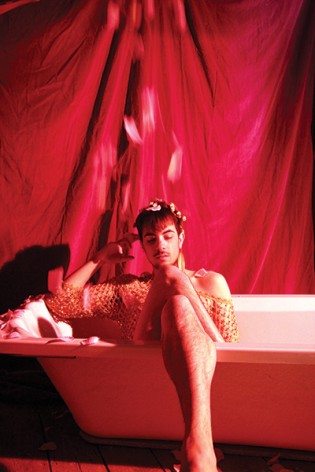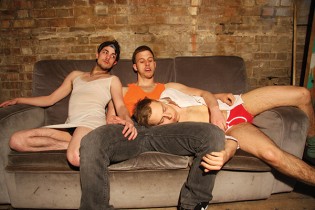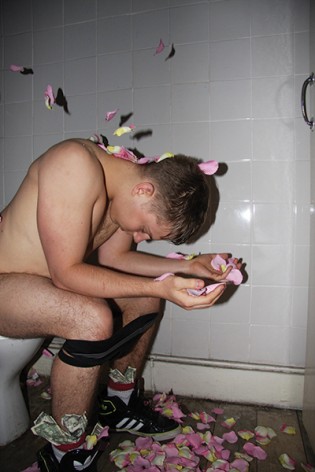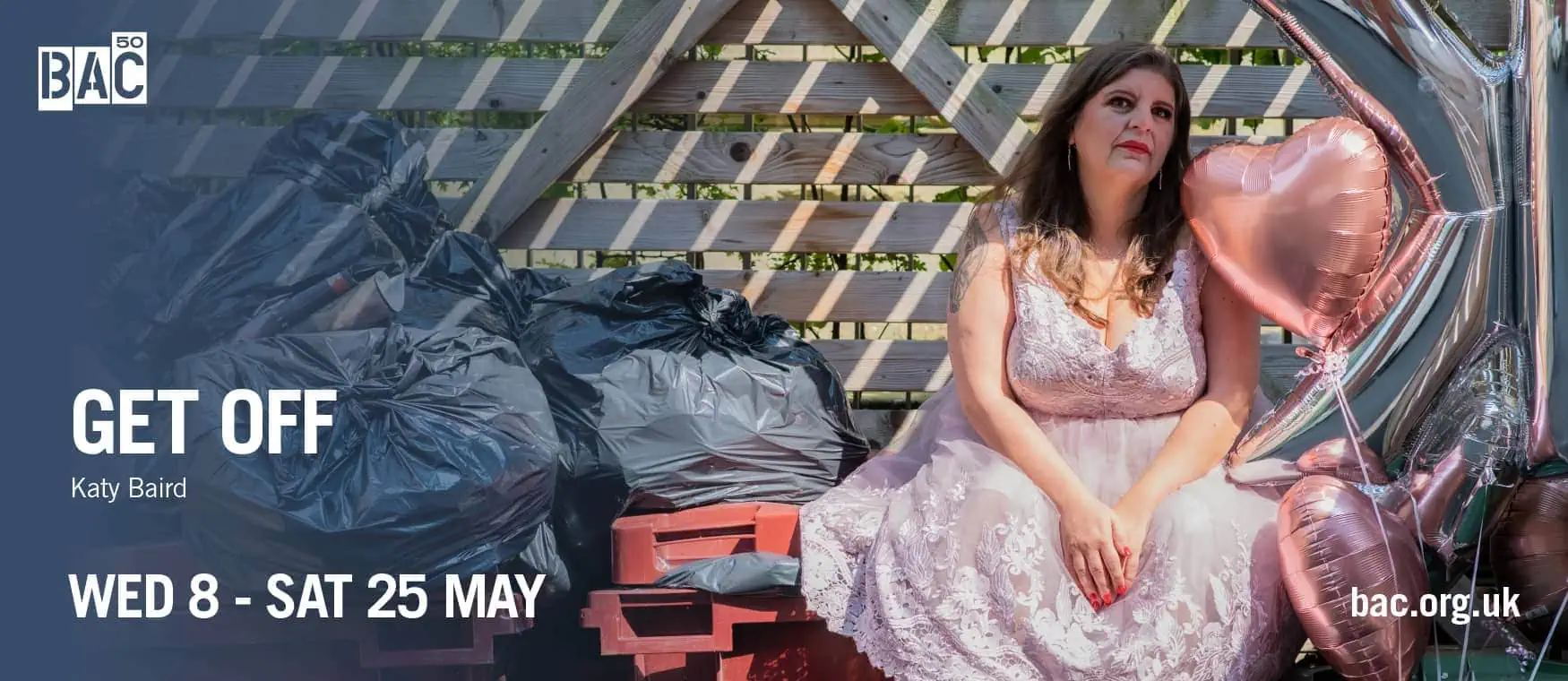Joseph Mercier’s Panic Lab theatre company has built up quite a reputation for exciting, innovative dramatic work over the past five years. We speak to them about their new production ‘Of Saints and Go-Go Boys’, inspired in large part by the work of gay French writer, vagabond and thief Jean Genet.
By Patrick Cash
Tell us a bit about yourself.
I work in cross-discipline – dance, theatre – performance art, but I’m particularly interested in queer, feminist work that sits at the boundaries. Working with limits: limits of the body, limits of acceptability, limits of politics. With Of Saints, shock and provocation is definitely included.

Canada, near Calgary.
What got you into theatre and brought you to England specifically?
I got into theatre by forcing my sisters to do plays with me in the barn, which they hated and I loved. I’ve always had a really rich fantasy life and I guess it’s the realisation that it enables me to play out fantasies. And now these fantasies are deeply political, which I find exciting. And I came to England to do my Masters in directing at the Central School of Speech and Drama.

My co-performance maker Clara and I set it up about 5 years ago. We came together just as performance makers really and were interested in particular type of body-based performances. We’ve done work on wrestling and fighting, as well. We were thinking of work in sacrifice and violence, sacrificing ourselves to the spectacle.
What was the impetus of putting together Of Saints and Go-Go Boys?
A couple of impetuses: firstly I just love Jean Genet, I have a bit of an obsession with him. Of Saints is inspired by Our Lady of the Flowers. And a scene in Miracle of the Rose, where they hold him down and spit in his mouth, was hugely influential for my thinking about submission and ideas about abjection. And there’s this weird lineage of the ‘Divine’ character, from Genet’s Divine to John Waters’ ‘Divine’. In ours Divine is super-tragic, she narrates her own death, and she’s quite delicate. I think also what interested me about Our Lady of the Flowers was this idea of a queer family, and they’re really cruel to each other but kind of loving, and there’s this idea of being outsiders. I found this an important part of queer culture, and I loved how fatalistic and self-destructive they are, and how unapologetic they are for that.
How does your reading of Genet become pertinent to gay male culture in 2014?
I was reading a lot of really annoying articles about how bad gay men were and the drug scene, the risky sex scene, the party scene in London and how out of control it had got. And it struck me that there was a real lack of agency or sense of subjectivity in these narratives.
I found the writing itself disturbing in its assumptions about partiers’ subjectivity, and a real refusal to think about alternative ways of being, and a real denial of pleasure.
We can’t talk about those types of subcultures without addressing pleasure, and Genet writes about self-destruction and hedonism and the pursuit of pleasure. He treats it as sacred, that’s his recipe for sainthood. And then I started thinking about the Catholic saints, because of Genet, how they’re idolised for what is essentially destructive behaviour; they have a fucked-up but different relationship to pleasure in their matyrdom.
“That single, brief moment of eternity, that was a queer family, that then disappeared into Sunday morning.”
Saint Sebastian?
Totally. We’ve got a scene that’s all about Saint Sebastian. I wanted the piece to be challenging but really pleasurable aesthetically. We’ve taken a lot of care with it.

I don’t know. I hang out a lot with older gay men who have the most amazing stories about queer families. I’m kind of unabashedly nostalgic about gay culture. I tried partying for the first time this year, and it’s not really my thing, I don’t do it very often. But I was at one of these chill-outs and everyone was off their face, and I was struck by how this kind of relationship with time had shifted; suddenly time had become an eternity.
I looked around but there was actually so much care and affection, and I know it was totally drug-induced, but I don’t know why that’s more or less meaningful than something else. That single, brief moment of eternity, that was a queer family, that then disappeared into Sunday morning.
• Of Saints and Go-Go Boys will be playing on Thursday 17th (8pm), Friday 18th (6pm & 8pm) and Saturday 19th (6pm & 8pm), at the Toynbee Studios, 28 Commercial Street, E1 6AB.











